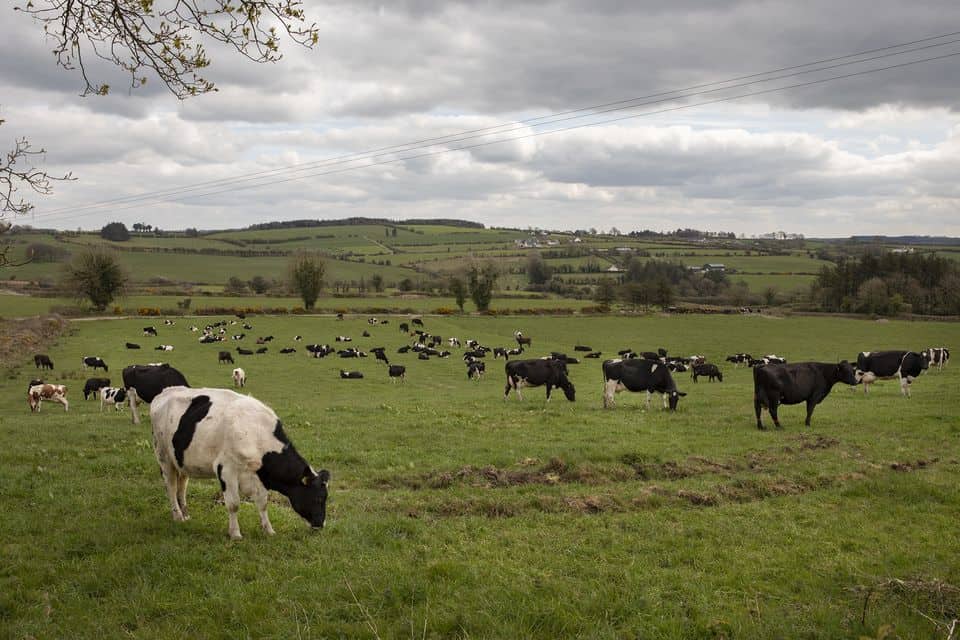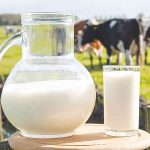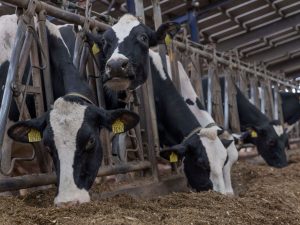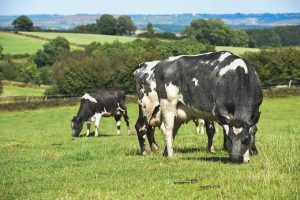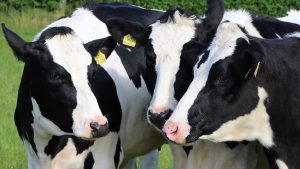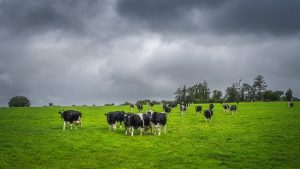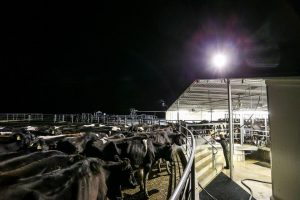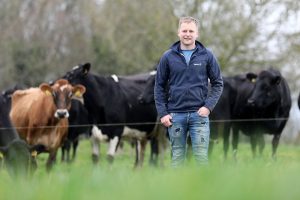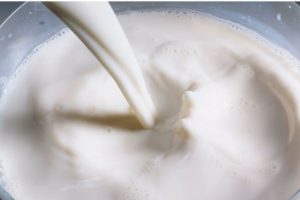
Ireland’s current derogation is due to expire on January 1, 2026, and the derogation limit is due to reduce to 220kg/ha on January 1, 2024 in certain areas, because the latest water quality results have not shown sufficient improvement.
Dairy famers face the prospect of significantly cutting their cow numbers as Government negotiations with the EU to maintain current stocking rate levels look set to fail.
It comes as mooted restrictions to Ireland’s Nitrates derogation which enables farmers here to stock higher numbers of animals on their land look set to be enforced due to declining water quality in recent years.
The decision will mean thousands of dairy farmers that utilise the derogation will be forced to gain access to more land or cut their cow numbers in order to comply with the regulations.
Approximately 7,000 farmers avail of the derogation and the Department estimates around 3,000 farmers are between 220kg and 250kg and will therefore be affected by the 220kg being the maximum.
The IFA has estimated that the loss to the rural economy will likely be €236m, but said the impact it will have on the impacted family farms will be much more devastating.
However, environmental groups have long argued for the removal of the derogation due to declining water quality in our rivers, lakes and estuaries with the EPA pointing to agriculture as the biggest contributor to the decline.
However, there is “no prospect” of re-opening the current Commission decision giving a derogation from the standard Nitrates Directive rules on Ireland, the EU Commissioner for the Environment Virginijus Sinkevičius had said.
In a statement today, Ireland’s Minister for Agriculture Charlie McConalogue said he had met with the EU Commissioner this week to discuss the matter.
“The Commissioner made it clear that Ireland is one of only three remaining member states with a derogation, while stressing that there is no prospect of re-visiting the current decision.”
Referring to the meeting, Minister McConalogue said he made a strong case to Commissioner Sinkevicius for the retention of Ireland’s 250kg/ha derogation until the next review, based on Ireland’s unique, grass based agricultural system, the measures farmers had already taken to improve water quality, and the need for additional time to see the results of these measures in our water quality indicators.
“It may be possible to make some very minor adjustments to the current mapping based on scientific parameters, but these are unlikely to affect the vast majority of derogation farmers. My Department will be examining this over the next few weeks and engaging with the Agriculture Water Quality Stakeholders Working Group in this regard.
“It is critical now that derogation farmers, with the help of their advisors, make the necessary arrangements to manage their holdings within the derogation limits applying from January 1 next year. My Department will be issuing N and P Statements to farmers shortly to assist in that task.
“In the meantime, we must continue to do everything we can to improve water quality, so that we can make a credible case for the renewal of the derogation in 2026.”
The EU’s Nitrates Directive permit the use of a maximum 170kg of organic nitrogen per hectare. The Directive allows for a time limited derogation from these rules in certain circumstances.
At present, Ireland’s derogation permits the use of up to 250kg per hectare on ‘derogation’ farms. Ranging in size from small to larger farms across the country, these are more intensively stocked farms that apply a range of additional measures beyond standard requirements to mitigate the risk to water quality.
Ireland’s current derogation is due to expire on January 1, 2026, and the derogation limit is due to reduce to 220 kg/ha on January 1, 2024 in certain areas, because the latest water quality results have not shown sufficient improvement.
Through measures such as the €60m investment in an initiative Water European Innovation Project (EIP) specifically to support farmers and the Targeted Agricultural Measures (TAMS) Scheme, the Minister said his Department will continue to support farmers as we continue on the journey to reduce the loss of nutrients to water.
Teagasc and the private advisory service will also continue to play a key role in supporting farmers through the advice they provide to farmers in this regard, he said.
